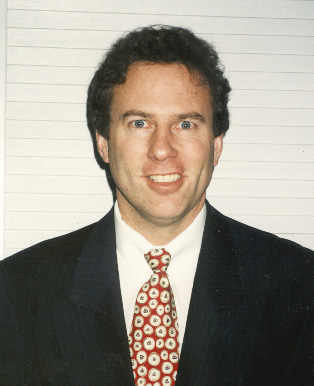The State of TV Piracy In North America, Circa Q4, 2010
The smarter way to stay on top of the multichannel video marketplace. Sign up below.
You are now subscribed
Your newsletter sign-up was successful
Recent research and investigations involving The Carmel Group suggest that more than $100 million in annual revenues are subject to being stolen by video thieves.
This is especially pertinent as it relates to program purveyors of premium (e.g., HBO, Cinemax, Showtime, and Starz) and adult programming, as well as every kind of cable network.
The theft is occurring primarily in the U.S. within Dish Network, and in Canada within Bell ExpressVu, because of their Nagra-3 conditional access card’s lack of a fix for card sharing, as well as the programmers’ frequent lack of sophistication, and certainly their lack of action.
Card sharing means that a legitimate set-top box access smart card is replicated, or cloned, by a signal thief, who is also known as a “pirate” or a “hacker.” Because of the limits of physics, typically today no more than 100 additional cards can be cloned off of the single master card. More precisely, when more than 100 people go on to the server at the same time and try to access the programs using the existing clone cards, the server gets clogged and cannot respond. The delay means the channel acquisition time becomes so long that the so-called customers, or hackers/pirates, would have to wait too long between channel changes. On the other hand, the clone cards work well for the pirates because they are hard to shut down via electronic means.
Through the years, The Carmel Group has advised many pay TV providers to employ a more sophisticated card solution to help remedy their conditional access problems. Yet, for Dish and ExpressVu, they and their conditional access partner, Swiss-based NagraStar, determined long ago to activate a much cheaper, “off-the-shelf” card, one that lacked the sophistication of a specialized card, such as that used today by the U.S. satellite leader, DirecTV.
The El Segundo, Calif.-based DirecTV has deployed its own specialized, custom card since the first half of 2004. That well-designed card has remained hack-free well beyond its expected time, which in its own version of Moore’s Law, would have been no more than 24 months.
In the case of the DirecTV card now in place, it has remained uncompromised for going on 66 months (or five-plus years). That, in itself, is remarkable, and perhaps additional testament to the advice given these pay TV providers many years ago. (In other words, if the specialized card worked for DirecTV for more than five years now, perhaps it is clearly the better solution for Dish and ExpressVu today.)
The smarter way to stay on top of the multichannel video marketplace. Sign up below.
Today, we estimate there are roughly 200,000 pirates receiving their Dish Network, Bell ExpresVu, and other programming via Free-To-Air (FTA) card sharing. At a modest $50 per month, that amounts to $120 million lost by Dish and ExpressVu annually to those pirates, and good chunks of that amount lost monthly by premium and adult programming and by cable network business people who are not getting paid because Dish and ExpressVu are not getting paid. The Carmel Group and its affiliates gather information, in part at least, about pirates and their effectiveness, using methods gleaned from years of tracking, some of it tied to the Internet and its resources.
Looking down the road, we still expect a full assault upon Dish and ExpressVu systems to occur in the form of a further deterioration of the Nagra-3 card’s capabilities, meaning that within the next year, millions of Dish’s and ExpressVu’s viewers will be paying nothing or a fraction of the of value of what they watch.
A recent example of the FTA pirate scourge is the arrest and conviction of southern California-based FTA manufacturer and distributor, Jung Kwak. He recently pleaded guilty to federal charges of paying $250,000 to the person who could prove and deliver to him the capability of hacking into the Dish/ExpressVu/Nagra-3 smart card.
For Dish and ExpressVu, their hands are tied. The best they can do at this time is to begin getting another card ready for future deployment and change out. This new design, or Nagra-4 card, is advised to include a feature that will deal with the element of card sharing (which the Nagra-3 card did not).
As further evidence of the gravity of the threat, card sharing is a huge problem today among Europe’s TV viewers. The amount of revenues lost at program negotiation time, and the sums that law abiding legal subscribers and viewers end up subsidizing daily because of the hackers are huge.
And what is truly amazing is that many programmers and operators have actually no real clue that this whole ecosystem exists. That, or, they turn a blind eye. They also don’t appreciate its impact on their annual revenues. Further, they do not appreciate how much at contract renewal time learning and knowing about how much of their signal revenue has been or will be hacked in the future, and the impact that can have on those program negotiations.
Make no mistake: the most revenues are lost by the adult programming sector. But even the off-air networks lose from card sharing and signal theft in that retransmission-consent agreements cannot include payments for subscribers who do not exist on the pay TV provider’s rolls.
Jimmy Schaeffler is chairman and CSO of Carmel-by-the-Sea-based consultancy The Carmel Group.
Jimmy Schaeffler is chairman and CSO of The Carmel Group, a nearly three-decades-old west coast-based telecom and entertainment consultancy founded in 1995.

